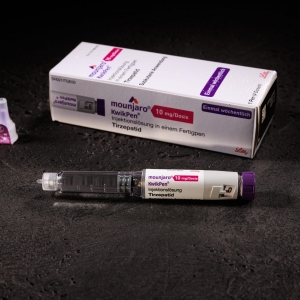In the complex and fast-paced world of healthcare, efficient financial management is vital for sustainability and growth. One of the most significant challenges medical practices face today is managing unpaid claims, delayed reimbursements, and uncollected patient balances. This is where a professional medical accounts receivable service plays a transformative role. By streamlining the A/R process, healthcare organizations can accelerate cash flow, minimize write-offs, and maintain a stable financial structure. For practices that want to strengthen their financial foundation, partnering with experts like billing services medical can be a game changer in ensuring that every dollar earned is efficiently collected and recorded.
Understanding the Role of Accounts Receivable in Healthcare
Accounts receivable (A/R) is the lifeblood of any medical practice. It represents the outstanding payments owed by insurance companies and patients for services rendered. Inefficient A/R management leads to cash flow interruptions, increased administrative burdens, and potential revenue loss.
A well-structured medical accounts receivable service ensures that claims are submitted correctly, denials are swiftly addressed, and unpaid accounts are followed up consistently. It bridges the gap between service delivery and payment collection, ensuring that healthcare providers receive their rightful compensation in a timely manner.
Why Medical Accounts Receivable Management Is Essential
Healthcare providers often struggle with reimbursement delays due to coding errors, incomplete documentation, or missed follow-ups. When A/R management is neglected, the result is a growing backlog of unpaid claims that negatively impacts revenue.
Outsourcing to a professional team allows providers to focus on patient care while experts handle financial intricacies. These services track claim statuses, appeal denials, and communicate with payers efficiently. With advanced analytics, medical billing teams can identify trends causing payment delays and implement targeted solutions to improve cash flow.
Key Functions of a Medical Accounts Receivable Service
An effective A/R service does more than just collect overdue payments—it optimizes the entire revenue cycle. Some of the key functions include:
-
Claim Follow-Up: Consistent follow-up on pending claims ensures faster reimbursements and reduced aging of accounts.
-
Denial Management: Identifying and addressing the root causes of claim denials to prevent future issues.
-
Payment Posting: Accurate posting of payments received from patients and insurers to maintain financial transparency.
-
Patient Collections: Effective communication with patients to ensure timely payment of outstanding balances.
-
Reporting and Analytics: Generating detailed reports that highlight collection trends, denial rates, and financial performance metrics.
These processes work together to ensure that your organization maintains optimal financial health.
The Link Between A/R Efficiency and Financial Stability
A smooth accounts receivable process directly impacts a healthcare provider’s bottom line. A backlog in A/R can lead to significant financial stress, making it difficult to manage operational costs. Professional A/R services use automation, analytics, and experienced personnel to ensure payments are received faster.
This not only enhances revenue but also improves forecasting accuracy and budget planning. Practices can confidently allocate resources toward patient care, technology upgrades, or staff expansion without worrying about financial instability.
The Value of Partnering with a Professional Billing Company
In today’s competitive healthcare landscape, outsourcing financial operations to specialized firms provides a clear advantage. Partnering with a trusted team like medical accounts receivable service ensures a comprehensive approach to A/R management that combines technology and expertise. These professionals understand the evolving payer requirements, changing coding guidelines, and the importance of prompt reimbursements.
By leveraging their experience, practices can reduce administrative workload, minimize claim rejections, and improve revenue recovery rates. This partnership not only enhances efficiency but also fosters long-term financial stability.
Integrating Technology in Medical Accounts Receivable Management
Modern A/R management relies heavily on automation and data analytics. Advanced billing software and AI-driven solutions are revolutionizing how healthcare organizations manage their accounts receivable. These technologies help detect errors before claim submission, track payments in real time, and automate follow-up reminders.
Integrating these tools streamlines workflows, reduces manual errors, and provides actionable insights into financial performance. It allows practices to make data-backed decisions that enhance operational productivity and revenue outcomes.
Why U.S. Practices Trust Professional Billing Firms
Across the U.S., healthcare providers are recognizing the importance of outsourcing their financial processes to professional billing companies. Firms offering billing services medical provide comprehensive solutions that include billing, coding, claim submission, and A/R management under one umbrella.
By entrusting these tasks to experts, healthcare organizations can focus on delivering superior patient care while maintaining a healthy revenue cycle. Outsourced billing also provides scalability—allowing practices to grow without being hindered by administrative bottlenecks.
Benefits of Outsourcing Accounts Receivable Services
Outsourcing your A/R management offers a host of advantages, including:
-
Faster Reimbursements: Professional teams ensure timely claim follow-ups and appeals, reducing payment delays.
-
Reduced Denials: Experts identify and correct issues that commonly lead to claim denials.
-
Increased Efficiency: Automated systems minimize manual work, freeing up staff for more critical tasks.
-
Improved Patient Relationships: Clear billing communication fosters patient trust and satisfaction.
-
Cost Savings: Outsourcing eliminates the need for in-house billing staff and associated operational costs.
How Accounts Receivable Impacts Revenue Cycle Management (RCM)
Accounts receivable management is an integral part of the revenue cycle. Each stage—from patient registration and insurance verification to billing and payment posting—affects the speed and accuracy of revenue collection.
Inefficiencies in A/R can create bottlenecks that disrupt the entire cycle. Effective management ensures every claim moves swiftly through the system, minimizing delays and improving overall cash flow.
Common Challenges in A/R Management
Despite its importance, managing A/R comes with several challenges, such as:
-
Complex payer policies that lead to frequent denials.
-
Delayed follow-ups due to understaffing or lack of automation.
-
Coding errors that result in claim rejections.
-
Inconsistent communication between billing staff and insurance payers.
Overcoming these hurdles requires a combination of skilled professionals, modern technology, and proactive processes—all of which are provided by leading billing service providers.
Future of Accounts Receivable in the Healthcare Industry
As healthcare continues to evolve, financial management processes must adapt as well. The future of A/R management lies in automation, AI-based analytics, and predictive modeling. These innovations will allow medical practices to forecast cash flow, identify potential bottlenecks, and make smarter financial decisions.
In addition, as patient payment responsibilities increase under high-deductible health plans, efficient A/R processes will become even more essential. Practices that invest in robust A/R systems today will be better prepared to navigate tomorrow’s financial challenges.
Conclusion
In healthcare, timely payments are crucial for operational success. A reliable medical accounts receivable service ensures consistent cash flow, reduces administrative burden, and helps healthcare organizations maintain financial health. By integrating modern technology and partnering with experienced billing professionals, practices can achieve greater efficiency, profitability, and peace of mind.
Investing in expert A/R management isn’t just about collecting payments—it’s about securing the future of your healthcare business.
FAQs
1. What is a medical accounts receivable service?
It’s a specialized financial management service that focuses on tracking, collecting, and managing unpaid medical claims and patient balances to improve cash flow.
2. Why is A/R management important in healthcare?
Efficient A/R management ensures faster reimbursements, fewer denials, and improved financial stability for medical practices.
3. How does outsourcing A/R services benefit providers?
Outsourcing saves time, reduces errors, improves reimbursement rates, and allows healthcare staff to focus more on patient care.
4. What technologies support A/R management?
Modern A/R services use billing software, AI tools, and analytics platforms to streamline claim tracking and reporting.
5. Can small medical practices benefit from A/R outsourcing?
Absolutely. Smaller practices gain access to professional expertise and automation tools without the high cost of maintaining an in-house billing department.










